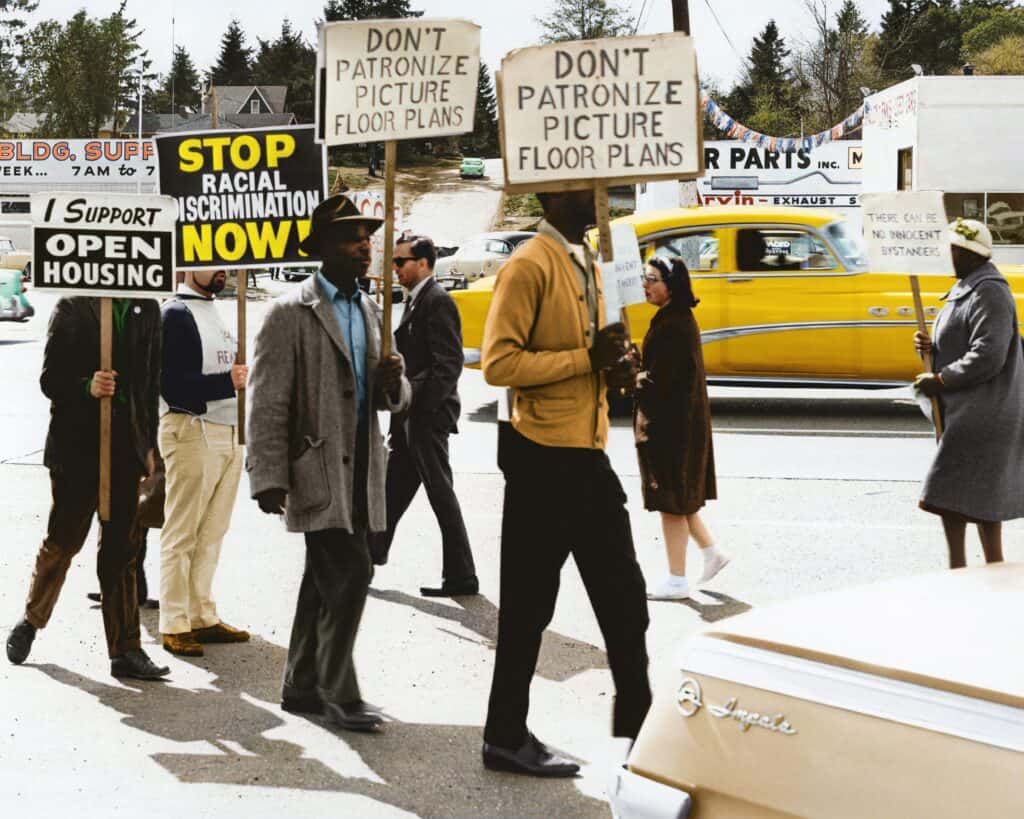Every April, Fair Housing Month gives us the chance to reflect on both the progress we’ve made as a country toward realizing housing equity and the challenges that remain. Discrimination in housing has not disappeared and, in many ways, it has simply changed form. That is why the tools NCRC uses to identify and address discrimination have needed to evolve as well.
This year, the need for strong fair housing enforcement mechanisms is especially urgent. Mass federal layoffs and grant funding cuts at organizations like the Department of Housing and Urban Development (HUD) weaken our government’s ability to investigate housing discrimination at a time when that work is as essential as ever.
One particularly useful fair housing enforcement tool is fair housing testing. Fair housing testing is a civil rights legal enforcement strategy that has been used for over 40 years. Fair housing testing is a civil rights investigative tool used by a range of accountability entities, including government agencies, legal advocates and non-profit organizations, to document how housing providers treat individuals during rental or sales interactions. These investigations help determine whether people are being treated differently based on protected class characteristics, such as race, national origin, disability or familial status, as outlined in long-established federal fair housing laws.
A common method of fair housing testing known as matched-pair testing involves using two testers who are the same in every way that is legally relevant (i.e., income, credit score, etc.), but differ in a protected class characteristic. These financially identical but physically distinct duos engage with the same housing providers to gauge possible biases related to the aforementioned protected class categories. Trained testers pose as potential renters or homebuyers and inquire about the same housing opportunity. If they receive markedly different treatment, the housing provider would be flagged for further assessment.
At NCRC, we conduct different types of matched-pair testing all over the country, including sales testing for single-family homes and rental properties. We have trained hundreds of testers over the years who have assisted with our crucial fair housing testing work. These testers take their knowledge back to their communities, educating others about their rights as renters and homeowners and ways to advocate for equitable housing.
Alongside our member organizations and community partners, NCRC has created data-driven insights that support equity in housing and wealth building. NCRC’s research team produces in-depth reports that highlight persistent inequality in the housing market. Our reports have traced the enduring impacts of redlining, revealed gaps in mortgage lending and homeownership by race and outlined how gentrification is impacting our country. These findings reinforce what fair housing testing reveals on the ground: that housing discrimination remains a systemic barrier to stability and economic opportunity for many Americans.
Today, housing discrimination can often fly under the radar. It may take the form of a subtle discouraging comment or a selective showing. Without enforcement tools like matched-pair testing, these covert forms of discrimination can go unnoticed. This is why we need to strengthen fair housing enforcement, not hollow it out. Congress should be investing in HUD’s Office of Fair Housing and Equal Opportunity (FHEO) and their federal grant programs to support private enforcement initiatives, education and outreach. When federal fair housing enforcement falters, communities will suffer.
Fair housing enforcement is handled by agencies at multiple levels—federal, state and local—so knowing your rights within your specific jurisdiction is especially important. You can look up what protected classes apply in your state and get a more in depth look at fair housing laws here. If you’ve experienced potential housing discrimination, your local civil rights organizations, legal aid agencies and fair housing agencies are a key resource. These organizations offer support and guidance to file complaints or get legal assistance. They are also great allies for housing professionals who are looking to stay informed and receive training on the latest fair housing law and policy trends.
NCRC, and many of our members, will continue to conduct fair housing testing and push for accountability from housing providers. Housing discrimination can take many forms, but so can action. Testing, enforcement and public awareness can all work together to uphold fair housing protections. Advancing fair housing is one way that we will move closer to a just economy for all.
Victoria Hausch is the Fair and Equitable Opportunity Program Specialist with NCRC’s Institutional Accountability team.
Picture of CORE-sponsored demonstration at realtor office of Picture Floor Plans, Inc. taken May 4th, 1964 from the Seattle Municipal Archives via Upsplash.



